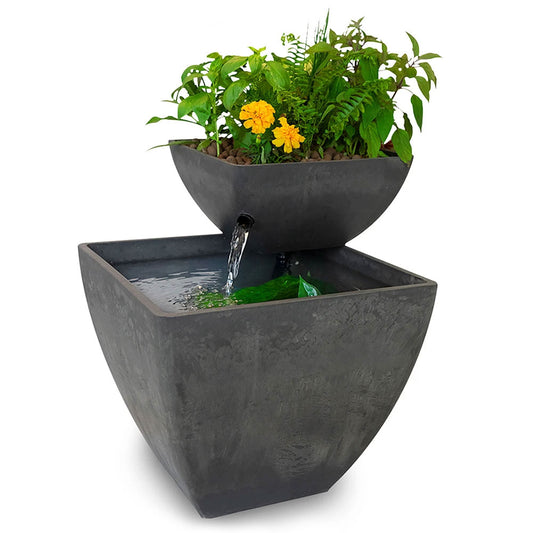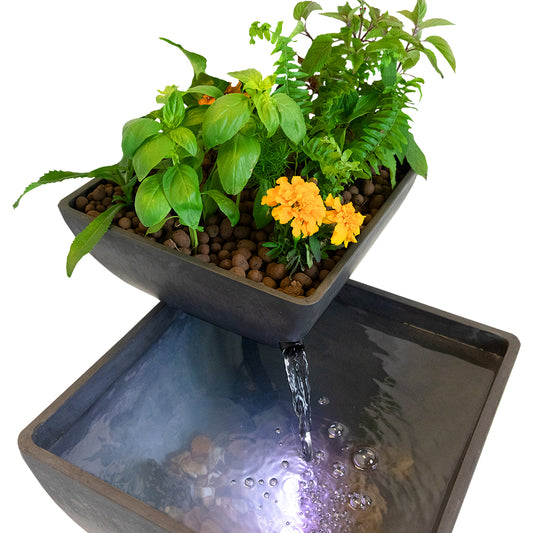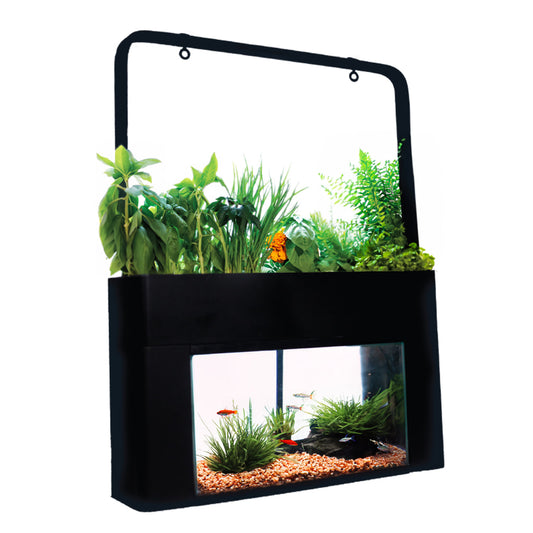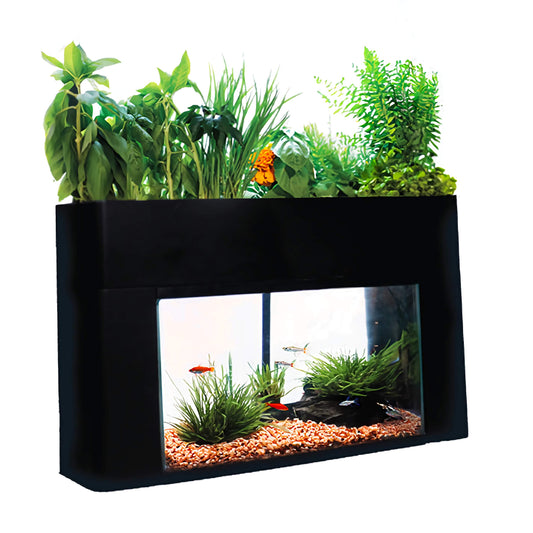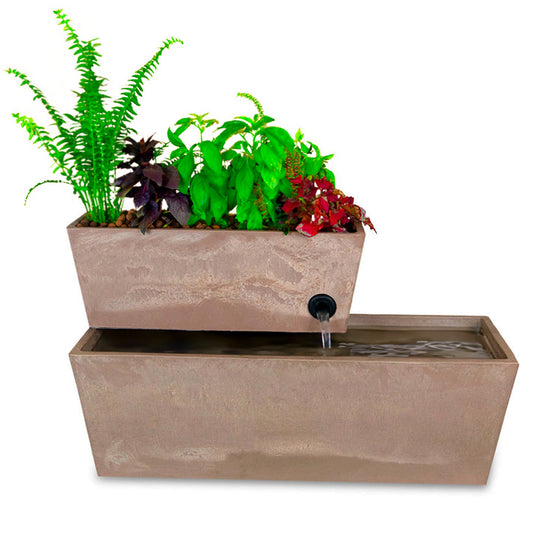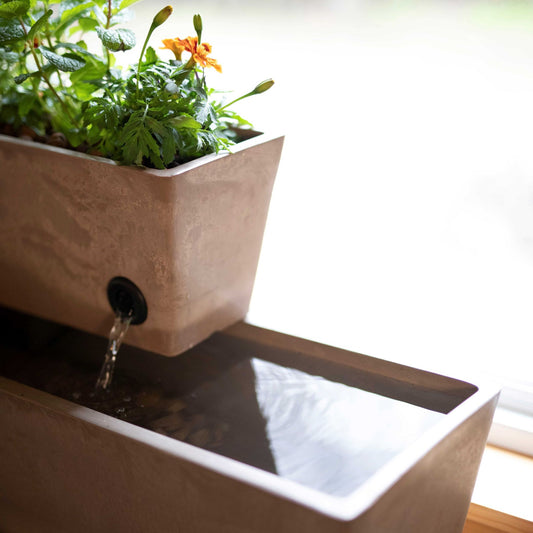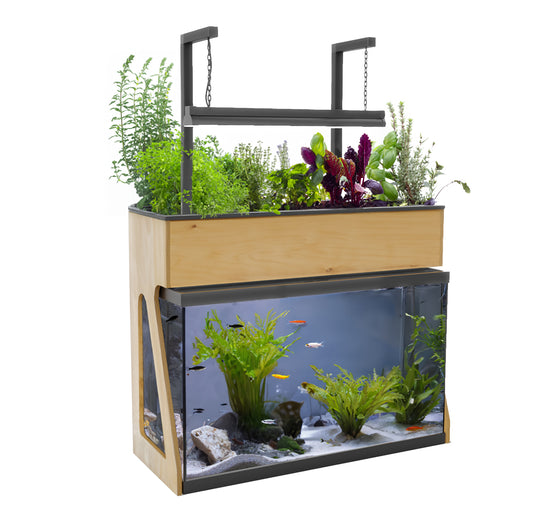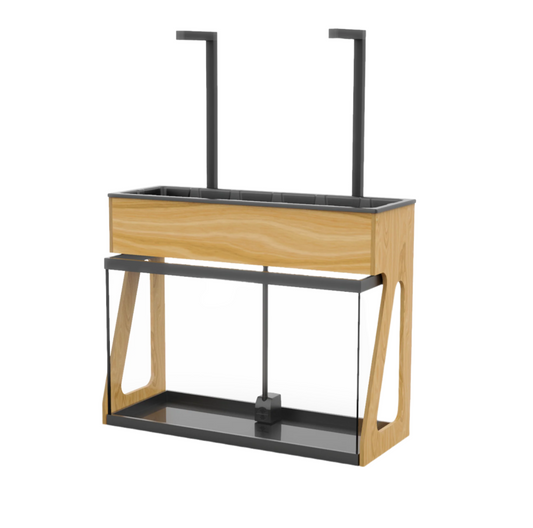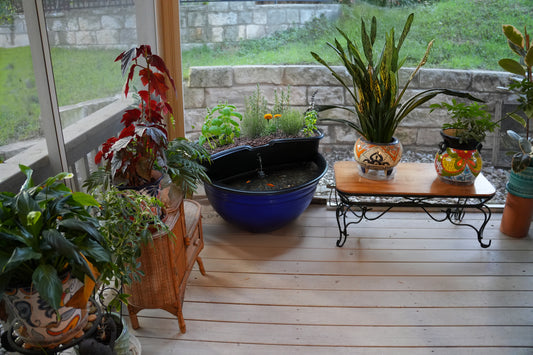Best Plants for Aquaponics/Hydroponics: Maximizing Yield in Minimal Space

Hydroponics and aquaponics are two revolutionary ways of growing plants that are becoming increasingly popular. Hydroponics is a method of growing plants without soil, using mineral nutrient solutions in water. Aquaponics is a type of hydroponics that combines the growing of plants with the raising of fish. The fish waste provides nutrients for the plants, and the plants help to filter the water for the fish. Both hydroponics and aquaponics are ideal for small spaces because they allow you to grow plants in a small area. With hydroponics and aquaponics, you can grow plants in a variety of environments, including indoors, balconies, or rooftops.
Let's take a closer look at the best plants for small aquaponic/hydroponic gardens. We have compiled a list of plants that are perfect for small spaces, ranked based on their soil space requirement, growth time, and yield per plant.
| Plant Name | Spacing | Growth Time | Yield per Plant |
|---|---|---|---|
| Lettuce | 6-8 inches | 30-45 days | 1-2 heads |
| Spinach | 4-6 inches | 30-45 days | 2-3 oz. |
| Swiss Chard | 8-10 inches | 30-45 days | 1-2 oz. |
| Arugula | 4-6 inches | 30-40 days | 2-4 oz. |
| Kale | 8-10 inches | 50-65 days | 3-5 oz. |
| Bok Choy | 4-6 inches | 35-50 days | 3-4 oz. |
| Mustard Greens | 4-6 inches | 30-40 days | 2-4 oz. |
| Basil | 8-10 inches | 60-90 days | 8-12 oz. |
| Cilantro | 8-10 inches | 50-55 days | 3-5 oz. |
| Parsley | 8-10 inches | 50-75 days | 2-4 oz. |
| Chives | 8-10 inches | 30-60 days | 2-3 oz. |
| Thyme | 8-10 inches | 60-90 days | 3-4 oz. |
| Oregano | 8-10 inches | 60-90 days | 2-3 oz. |
| Sage | 8-10 inches | 60-90 days | 3-4 oz. |
| Strawberries | 8-10 inches | 75-100 days | 8-10 berries |
| Tomatoes | 12-18 inches | 60-85 days | 4-6 lbs. |
| Peppers | 12-18 inches | 60-85 days | 3-5 oz. |
| Cucumbers | 12-18 inches | 60-80 days | 4-6 cucumbers |
| Zucchini | 12-18 inches | 50-65 days | 1-2 lbs. |
| Green Beans | 12-18 inches | 50-60 days | 2-4 oz. |
| Peas | 8-10 inches | 50-60 days | 2-4 oz. |
| Radishes | 4-6 inches | 20-30 days | 1-2 oz. |
In general, plants can be grown closer together in an aquaponic system than in soil-based gardening, primarily because of the higher availability of nutrients and the efficient use of space and resources. However, it is important to consider the growth habits and specific needs of each plant and ensure they have enough space to grow and access to adequate light and nutrients. It's also worth noting that plants in aquaponic systems tend to grow faster and larger than in soil-based gardening, so giving them enough space to grow is crucial for a healthy and productive garden.
These are just a few of the many plants that can be grown hydroponically. Aquaponic gardening is a great way to grow plants in small spaces. It allows you to control the environment in which your plants grow, and it eliminates the need for soil. With aquaponics, you can grow a variety of plants, including herbs, fruits, and vegetables. One of the biggest advantages of hydroponic gardening is that it is very efficient. Because the plants are grown in water, they receive all the nutrients they need, and there is no waste.

